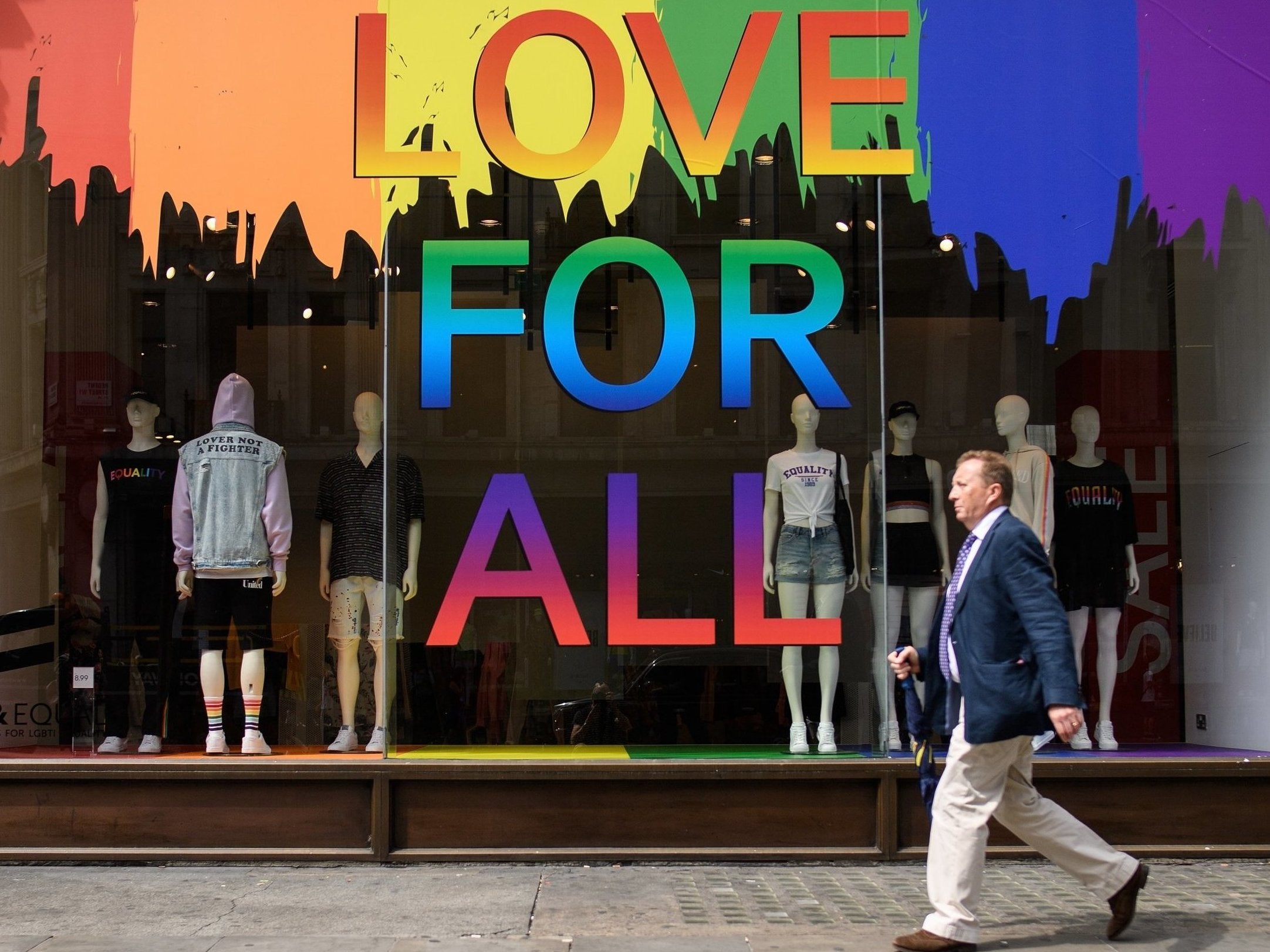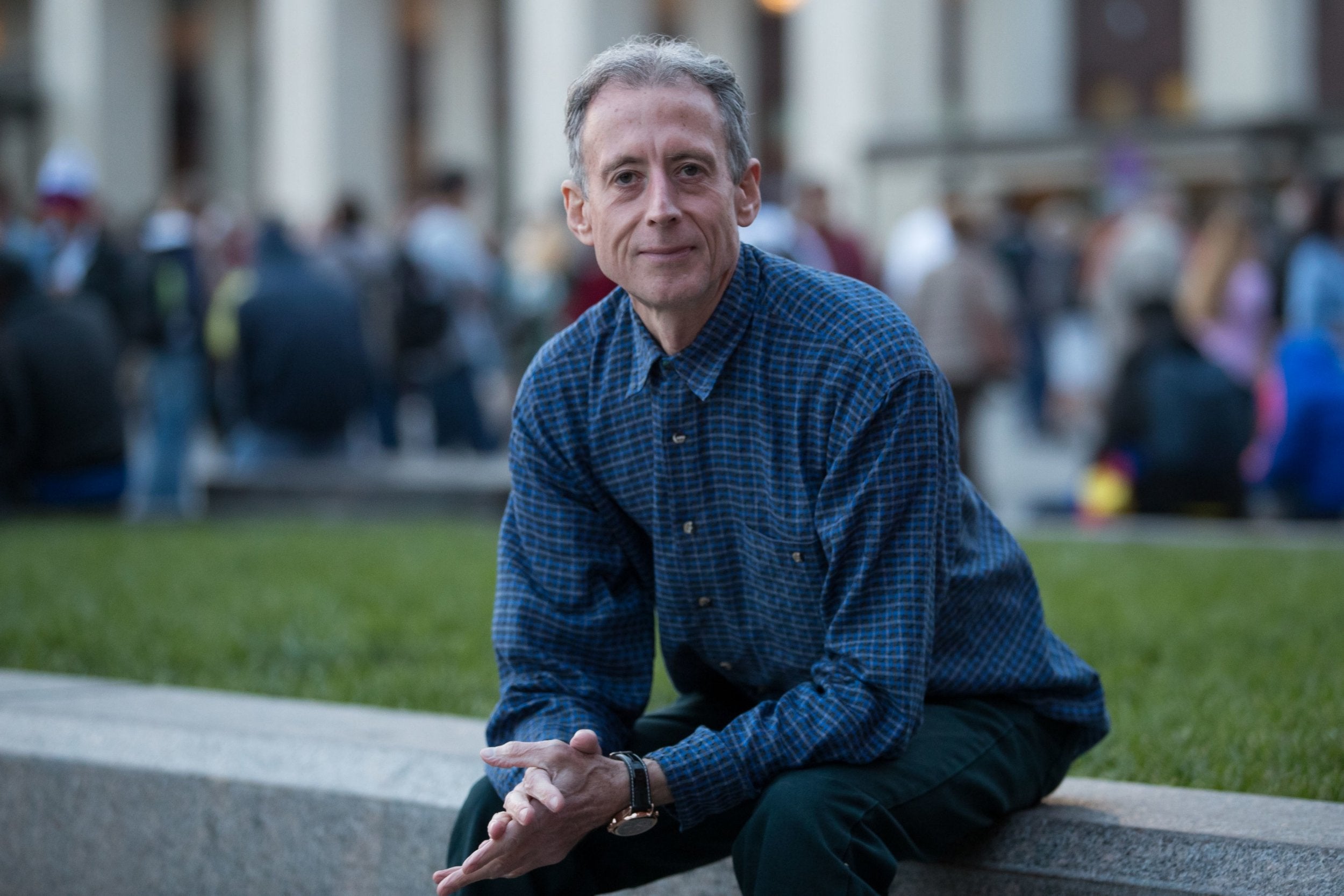London Pride march being 'degayed' by corporate sponsors, says veteran campaigner Peter Tatchell
‘If there was no limit, 100,000 people would march, like in the 1990s. The size and spontaneity of the parade is being strangled’

Your support helps us to tell the story
From reproductive rights to climate change to Big Tech, The Independent is on the ground when the story is developing. Whether it's investigating the financials of Elon Musk's pro-Trump PAC or producing our latest documentary, 'The A Word', which shines a light on the American women fighting for reproductive rights, we know how important it is to parse out the facts from the messaging.
At such a critical moment in US history, we need reporters on the ground. Your donation allows us to keep sending journalists to speak to both sides of the story.
The Independent is trusted by Americans across the entire political spectrum. And unlike many other quality news outlets, we choose not to lock Americans out of our reporting and analysis with paywalls. We believe quality journalism should be available to everyone, paid for by those who can afford it.
Your support makes all the difference.A leading LGBT+ rights campaigner has accused sponsors of this year’s Pride in London of “degaying” the event.
Peter Tatchell also criticised organisers for blocking “tens of thousands of people” from taking part.
The veteran activist said less than a third of those who wanted to march were being allowed to join the annual procession, describing the event as “increasingly regimented, commodified and straight-jacketed”.
Notting Hill Carnival, which takes over a swathe of west London each August bank holiday weekend, had avoided similar restrictions on size, growing to become Europe’s biggest street party, Mr Tatchell said, while Pride in the British capital is “one of the smallest in Western world”.
Amid a growing movement to “Reclaim Pride” in favour of groups highlighting human rights injustices – and away from corporate sponsors – Mr Tatchell told The Independent: “The parade needs commercial sponsorship to fund it but corporate floats now dominate the event.
“They’ve got the money, so they have huge extravagant floats that outshine and overwhelm the LGBT+ community groups.
“Many of the companies have degayed their floats. They don’t mention LGBT+, just Pride.”
Mr Tatchell, whose campaigning for gay rights has stretched over five decades, was detained in Moscow last month after staging a one-man protest against Russia’s treatment of LGBT+ people.

He said organisers had responded to claims of “punitive restrictions” placed on previous Pride events by increasing the size of this year’s procession by just 4,000.
“If there was no limit, 100,000 people would march, like in the 1990s. The size and spontaneity of the parade is being strangled by regulations, bureaucracy, red tape and the unreasonable dictates of the city authorities,” he said.
“Again this year, the authorities are enforcing punitive costs for road closures, pavement barriers, policing and security.
“They cite safety concerns and the disruptive impact on West End businesses if the parade was allowed to be bigger. It seems that commerce comes first.”
Pride organisers said a record number of people were taking part in this year’s event but increasing the size significantly was not feasible.
“We would welcome the opportunity to include every person who would like to march within the parade, but it is not practical at present – and the final marchers in the parade may find few spectators if they complete the route nine hours after the lead group.
“However, we will continue to review after each year’s event and will work closely with our partners on ways to safely increase the size of the parade.”
Protests are expected at this year’s march, which is set to attract more than a million spectators, with activists tweeting photos of signs decrying “rainbow capitalism”.
Mr Tatchell’s concerns echo those expressed by gay rights activists around the world about the shift some say Pride movements have taken away from campaigning and in favour of commercial ties.
“Companies should be made to post how much they spend on rainbow marketing vs how much they donate to LGBT+ organisations,” wrote one person on Twitter.
In March, the National Union of Students published a “Making Pride Political” guide, warning that the event had become “less and less about queer liberation and more about profits”.
A similar movement is underway in New York, where activists from the Reclaim Pride Coalition removed barricades during the city’s annual march last month, “allowing hundreds of others without wristbands to enter and join the parade”.
However, others support influential brands backing the gay movement, even if the political message is diluted.
“Corporate pride is actually really good,” one person tweeted. “Imagine what it would look like if brands put the same level of effort into performing similar displays of support during Black History Month.”
Join our commenting forum
Join thought-provoking conversations, follow other Independent readers and see their replies
Comments